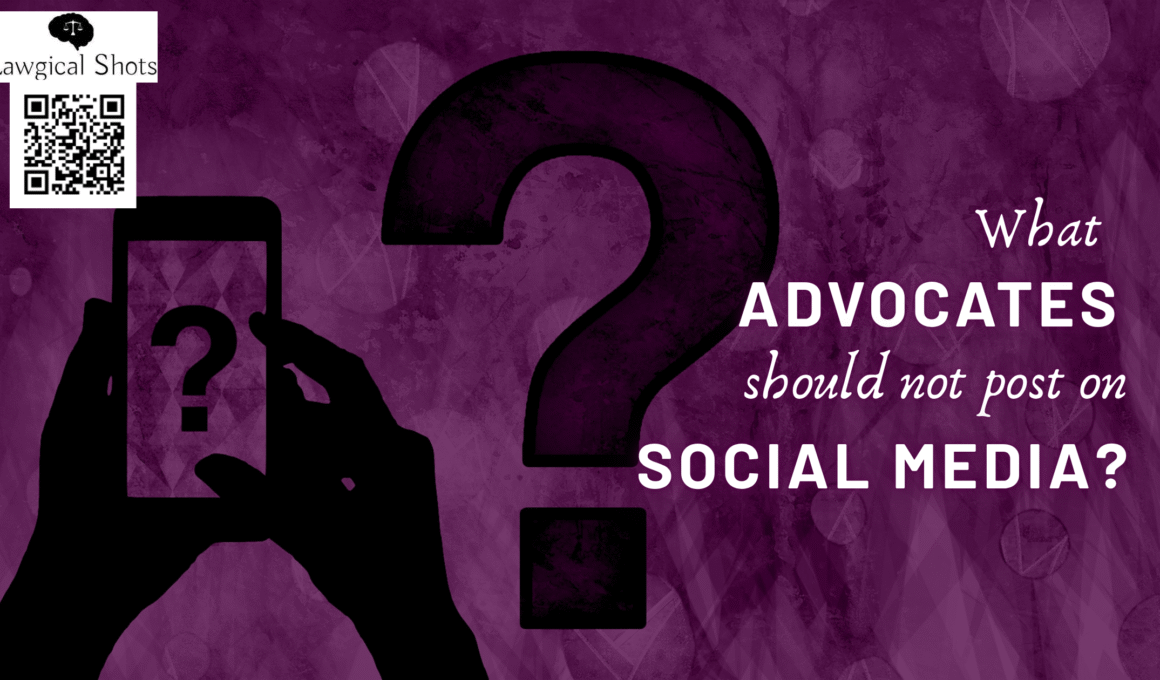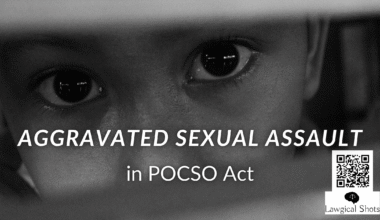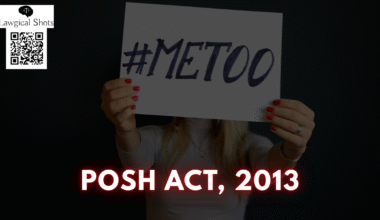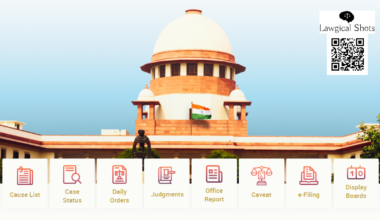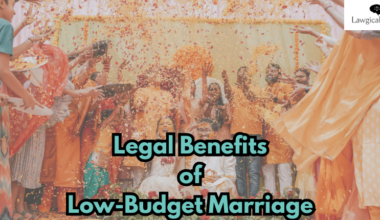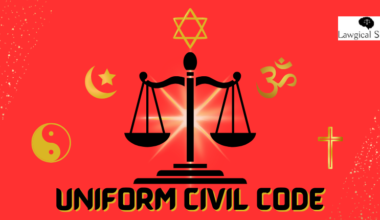Once upon a time, there was a recent law graduate who had interned under a couple of advocates in the District Court and High Court. Being tech savvy, he would run his fingers over his smartphone to find answers and solutions for anything and everything. He was the king of social media since school days, because he knew how to click photographs at right angles. He had expertise on what captions to add which would make the viewers stay back and check the posts. He would share about everything he experienced at work on his social media, and this is where a problem sprouted. One fine day, someone commented on his post that it was against the BCI rules on advertising, and that he was soliciting people to connect with him.
Were social media posts also covered in advertising? He did not realize earlier, for he was still a newbie in the legal fraternity, still exploring laws. Now, he had some doubts. Were advocates banned from using social media? That can’t be! But then, what is allowed? And more importantly, what is prohibited?
Explore in this blog…….
What Advocates Should Not Post on Social Media?

- No Self-Promotion
When a person tells or shows to others about their skills, accomplishments or talents, just to make them pay attention, this is self-promotion. It has become very common for advocates sharing on social media about how they used their arguments, their legal understanding to help clients get favourable orders from Courts. There are even those who claim to bring “justice” for clients, which in reality is not in the hands of an advocate.

Based on BCI Rules on Advertising, Advocates should avoid making social media posts to promote themself. When Advocates post on social media to promote their legal practice or to solicit potential clients, this goes against Rule 36 of BCI Rules which prohibits direct or indirect advertising. Since such posts are available in public, they may land such advocates in trouble.
- No Case Posts and Testimonials
Cannot say about other platforms but on LinkedIn, there are so many Advocates posting about their Court victories. There are posts like “got favourable order for my client”, “got bail for a client”, “my client was innocent and I convinced it before the Court”. Now almost all of them violate the BCI Rules on advertising through such social media posts. There are others who use social media and other service websites, even Google Reviews, sharing client testimonials. This is not really a good practice.

It is important for Advocates to understand that they cannot tell the world much about the cases they have been involved in to share how they won. This directly constitutes advertisement or solicitation to attract new clients. Things may or may not change in future, but based on applicable BCI Rules restricting advertisement for advocates as of now, this practice does not align
- No “Best Advocate” Claims
Haven’t you and I come across claims like “Best Criminal Lawyer”, “Top Advocate in Delhi”? What exactly does this imply? How could anyone claim to be the best lawyer in a particular area of practice? Is there any official criteria, or GPA for practising advocates? Well, all they need is a license of practice issued by the Bar Council. Afterwards, nothing makes an advocate best or worst except for the facts, skills and legal knowledge.

The Bar Council of India Rules on Advertisement prohibit comparative or self-lauding statements. This is not really a good practice for advocates who have to depend upon the applicable laws and specific facts to make a point before the Court.
- No Consultation Offers
Free Lawyer Consultation OR Diwali Discounts on Legal Services……Seriously? If this is not solicitation, then what is? When a company or service provider extends offers, they want more and more people to notice them, and hike their sales. This is a sure shot way of marketing and growing sales. But, legal services are not for sale. It is all about ethical practice. Being an Advocate, you assist the Court in attaining justice. For clients, you are an expert who knows the law and will represent them before the Court to technically narrate their side of the story. Either way, lawyers hold a lot of responsibility. Hence, attracting clients by using offers and discounts as weapons may backfire due to BCI Rules on advertising by lawyers.

- No Ads, No Sponsored Posts
Advertising and solicitation of work by advocates is strictly prohibited as per Bar Council Rules on Advertisement. People often assume that the same does not apply to social media for advocates. They run ads on various websites and social media platforms, pay for sponsored posts as well. However, what they misinterpret is that digital marketing through such means is just another way of advertising. Then how does it not fall under the sword of BCI Rules on advertising?

This is not ethical practice. This is just another way of soliciting clients by expanding reach to more and more potential clients by running paid advertisements on social media. Thus, it is squarely covered under BCI restriction on Ads by lawyers.
- No Misleading Content; No Guaranteed Outcome
Recently, the Bar Council of India had issued a couple of Press Releases, coming down heavily on those who spread misinformation on social media. If you are an advocate, you must have come across such content and may have faced a client who came misinformed watching one of the videos by advocates.
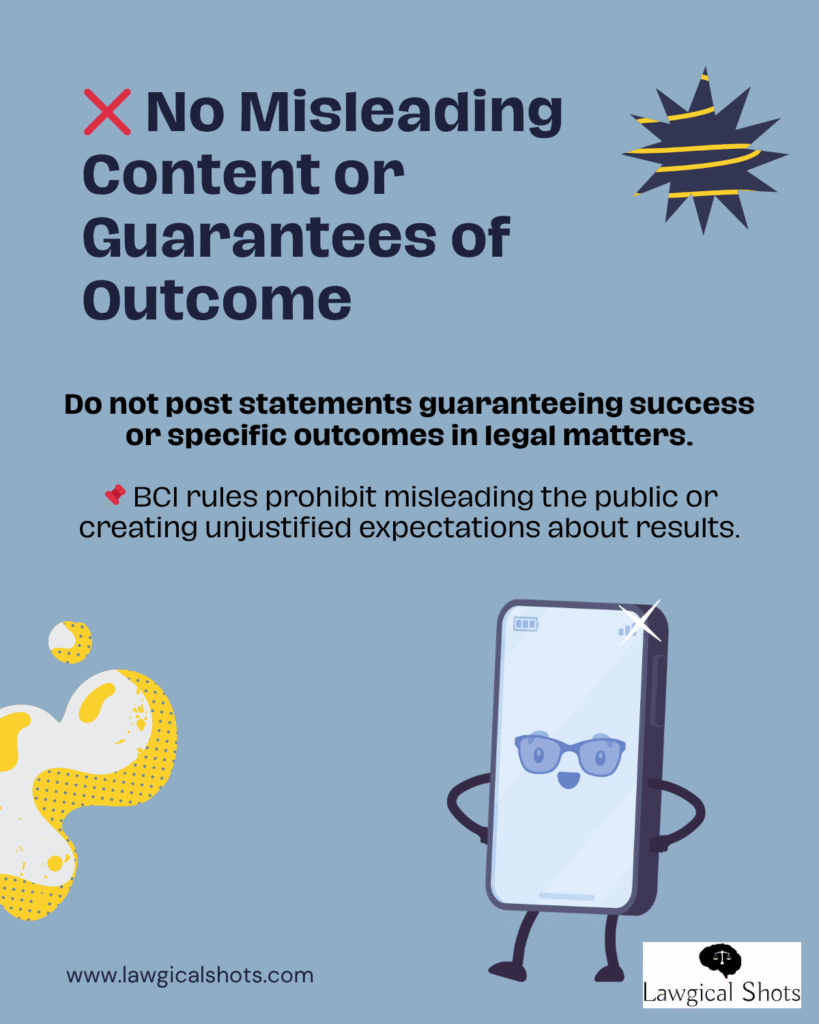
Sometimes, advocates skip on the legal research part and make videos in such a way that the information is not correct but misleading. This ends up problematic for clients, advocates, and the entire legal system. When such misinformation comes from practising advocates, it spoils the reputation of the legal fraternity.
Therefore, when you think about making a social media post, make sure that the legal information you aim to share is correct. Advocates sharing social media content should be wary that rather than aiming at more likes or views, they should focus upon how to bring concrete and 100% correct legal information for their audience.
Educate; Do Not Advertise
In this digital era where everything is just a few clicks away, the legal fraternity cannot be expected to be totally cut off from social media. That is just not a possibility! Even if the BCI issues specific notices in this regard, it will end up being challenged in the Court and right to expression will be upheld for advocates.
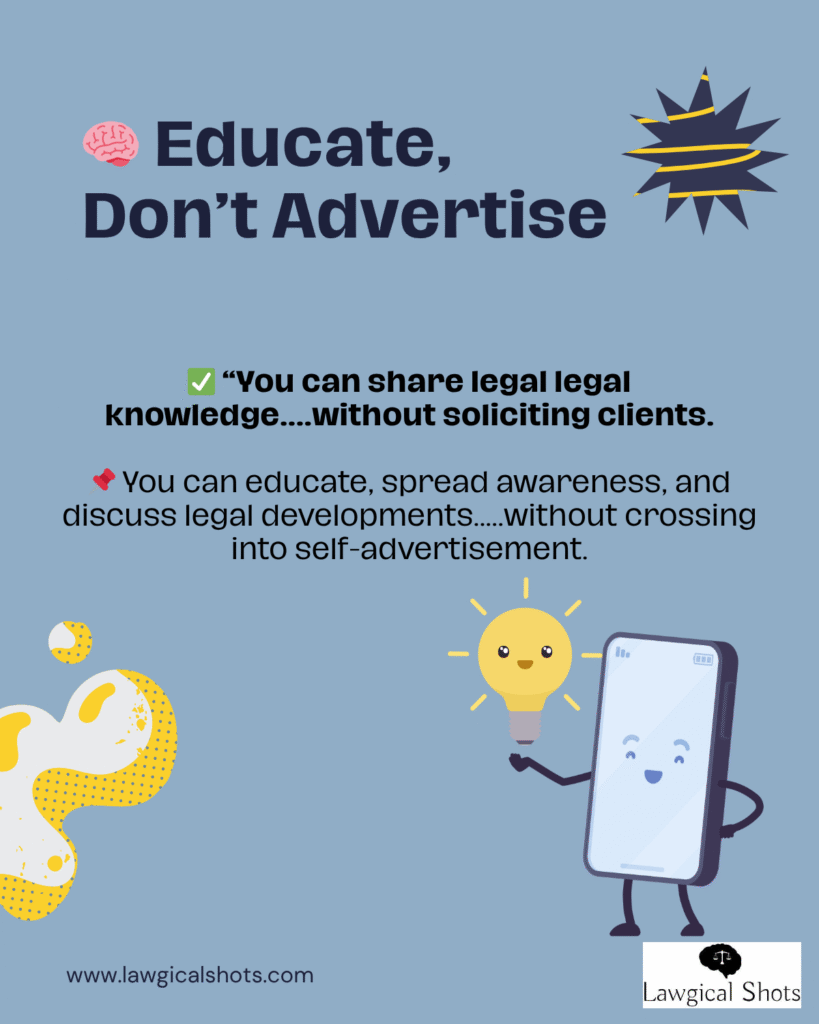
Please note that advertisement is a big no as per Bar Council of India Rules on Advertisement. However, the legal fraternity is always welcome for imparting education and spreading legal awareness. Whether you write legal blogs, make social media posts, use graphics or videos as media, or run webinars – you should impart knowledge. That is how you will get noticed by your potential clients and they will connect with you themselves.
We at Lawgical Shots can help you with content strategy that aligns with the BCI rules and can give you the edge too. You do not need to worry about where to start and what to write. You just need to share your legal knowledge and we can help you with refined content that reaches those who need answers and legal assistance.

